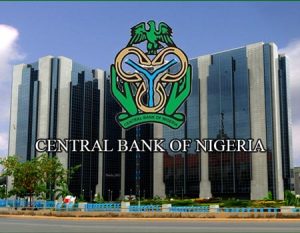Onome Amuge
Nigeria’s Monetary Policy Committee (MPC) is widely anticipated to maintain its benchmark interest rate at 27.50 per cent for the second consecutive meeting when it concludes its 300th assembly on Tuesday. This decision comes amid a cooling inflation rate, which has eased to 23.71 per cent in April, according to the National Bureau of Statistics (NBS).
A consensus has emerged among analysts and market observers that the central bank will likely keep the monetary policy rate (MPR) unchanged. While the trajectory of inflation appears to be improving and global economic pressures are showing signs of abating, domestic uncertainties and a cautious stance from the Central Bank of Nigeria (CBN) are expected to sway the committee towards maintaining the status quo. However, some speculation persists regarding a potential adjustment to the asymmetric corridor surrounding the MPR.
The CBN’s decision follows a period of price pressures, with inflation remaining at an elevated level. The Naira has also experienced recent volatility, particularly in April, triggered by a slump in the price of oil, Nigeria’s primary export. While these pressures have somewhat subsided, the apex bank is expected to adopt a measured approach to ensure sustained stability.
Gbolahan Taiwo, an analyst at JPMorgan Chase & Co., suggested in a client note that Nigeria might see some room for the CBN to cut rates in the latter half of the year as disinflationary trends are expected to gather pace.
This potential for future easing aligns with the expectations of other African economies such as Egypt, South Africa, and Mozambique, which are anticipated to implement rate cuts this month. In contrast, Nigeria is likely to follow the lead of Zambia, Angola, and Ghana in holding rates steady for the time being.
The MPC meeting marks the first rate-setting deliberation since the U.S imposed a 10 per cent universal tariff and initially levied a substantial 145 per cent tariff on goods from China, Africa’s largest trading partner, before reducing it to 30 per cent for a 90-day period. These global trade dynamics, coupled with broader international economic uncertainties, are likely to factor into the MPC’s considerations, analysts asserted.
The MPC is also coming at the heels of a report by the International Monetary Fund (IMF) in April in which the IMF revised its 2025 economic growth forecast for Nigeria downwards to 3.0 per cent, citing concerns over lower external demand, subdued commodity prices, and tighter financial conditions.
Analysts observed that this cautious outlook from the global lender further underscores the complexities facing the Nigerian economy and the delicate balancing act required by the MPC.
Domestic analysts largely anticipate a hold on the key rate. This is as Damilare Asimiyu, head of Research at Afrinvest, pointed to recent improvements in cost-side factors as supporting this view.
“We forecast a moderate decline in May inflation, aided by relative exchange rate stability and the recent reduction in pump prices by Dangote Refinery from N835 to N825 per litre. This should modestly reduce business operating costs and improve household purchasing power,” Asimiyu noted.
Ayodele Akinwunmi, senior relationship manager at FSDH Merchant Bank, concurred with the sentiment, stating that the CBN currently has little justification for an upward rate adjustment.
Akinwunmi believes the MPC’s options are primarily to hold or potentially reduce rates, with the higher probability leaning towards maintaining the current levels.
“No justification for an increase in rates at this meeting,” he insisted, arguing that the committee might instead consider adjusting the asymmetric corridor around the MPR to fine-tune market signals.
Akinwunmi highlighted the recent easing of Nigeria’s inflation rate to 23.7 per cent in April, down from 24.2 per cent in March, as a critical factor influencing expectations. He also pointed to a more stable global economic environment, citing recent moves by U.S. President Donald Trump to suspend or reverse certain tariffs, particularly those involving China. “This is providing clearer direction on markets and the global economy. This will also have positive impacts on the Nigerian economy,” he explained.
Given these domestic and international factors, Akinwunmi concluded, “There is therefore a higher probability that the MPC will wait a bit longer to signal a change in monetary policy stance. So a hold decision will be appropriate at this meeting.”
Analysts agreed that the anticipated decision to maintain the key rate reflects a cautious approach by the CBN, balancing the need to further curb inflation with the imperative of supporting economic growth in an environment marked by both domestic and global uncertainties.
As it stands, the market will be closely watching CBN Governor Yemi Cardoso’s announcement on Tuesday for further insights into the committee’s deliberations and the future direction of monetary policy in Africa’s largest economy.









